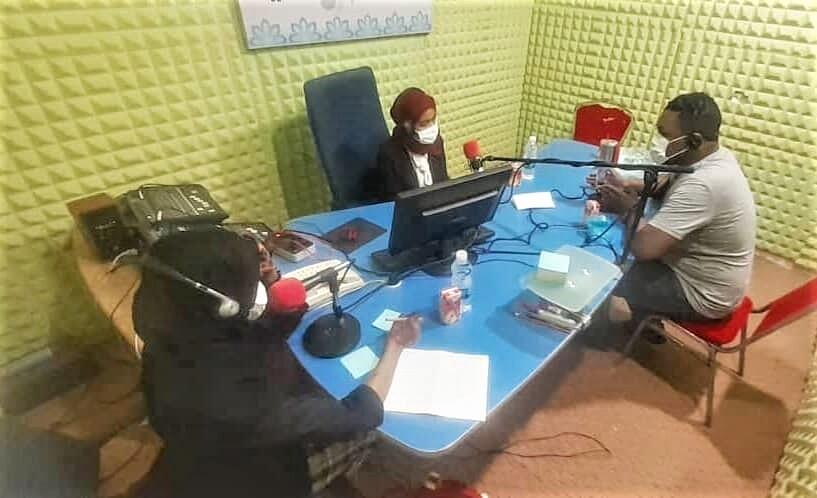“When I first heard about the virus I was afraid of losing our lovely old people, I come from a warm lovely hometown, where we keep good communication with each other and we care and help for each other,” Halima said. She is a 30-year-old woman leader from Women Union from Ghat city in the southwestern part of Libya and one of the micro-grant recipients of the UNFPA Youth Against COVID-19 Fund. Before the COVID-19 outbreak in Libya, Halima used to work on gender-related topics, advocating for and raising awareness of women's rights with Women Union in Ghat. At the beginning of the pandemic, she started a new initiative to help her community get trustful information on the COVID-19.
Weqaya team is a joint youth union from different NGOs in Ghat. With the leadership of Halima, they work on educating others on the on the seriousness of this virus, the importance of the curfew and quarantine, as well as of taking all the necessary measures to prevent the spread of the virus.
Halima is also working as a dentist and she had to close her business to ensure the safety of herself and others. “We all need to adopt a new lifestyle, we may still don’t know how the future is going to look like, but until a treatment is found for COVID-19, we need to follow all the recommendations coming from experts and we need to stay together as a community, no one alone can beat this virus.”
Weqaya team launched a media campaign on social media and on radio stations to raise awareness of the seriousness of the disease and the importance of social separation. “We, as a young people, have a better access to information, and we took it up on us to share this knowledge with our community, in order to educate people on how they can protect their selves and others by following a simple action,” she said.
This World Humanitarian Day, we recognize the efforts of people like Halima, real-life heroes who have stepped up in combating COVID-19 and are committing their lives to protecting their communities.
Since the start of the pandemic in March 2020, UNFPA has been working with its national and international partners to ensure that women and girls in Libya still have access to reproductive health care services. To ensure this, UNFPA has trained medical staff on COVID-19 case management, introduced remote modalities of service provision in the Women and Girls Safe Spaces and supported youth-led initiatives focusing on raising awareness of COVID-19 within the community.
In April 2020, jointly with Tracks Organization for Peace and Development (TOPD), UNFPA Libya established the Youth Against COVID-19 Fund. The Fund aims to support youth initiatives that address the pandemic in Libya by increasing community awareness, promoting innovative prevention measures and supporting frontline health workers. The fund has awarded six micro-grants to six different youth-led initiatives implemented in nine different Libyan cities, namely Tripoli, Benghazi, Sebha, Ghat, Gherian, Sebrata, Eljemail, Surman, and Alkhums. This is part of UNFPA’s ongoing efforts to support young people in becoming agents of behavioral change within their communities and actively engage in the COVID-19 response.


